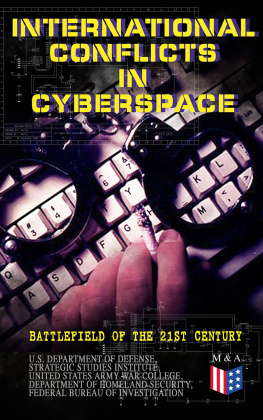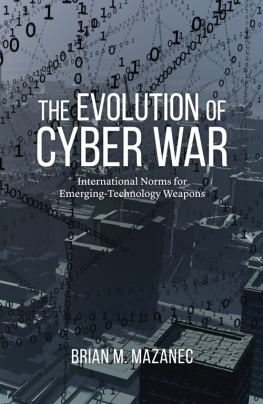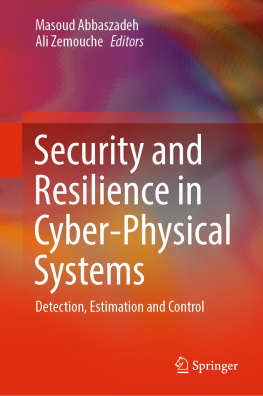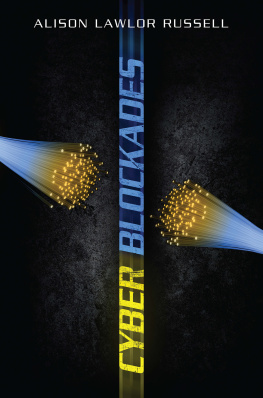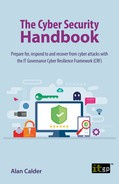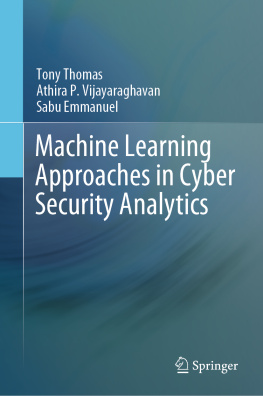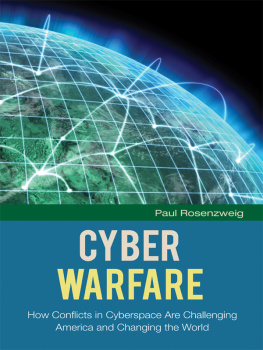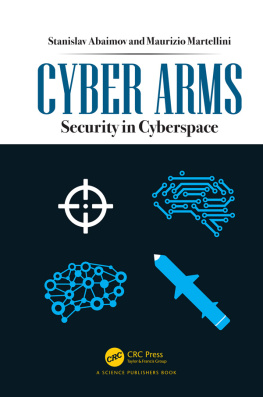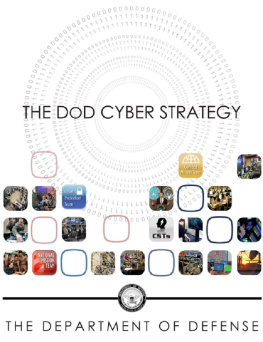U.S. Department of Defense, Strategic Studies Institute, United States Army War College, Department of Homeland Security, Federal Bureau of Investigation
International Conflicts in Cyberspace - Battlefield of the 21st Century
Americas Biggest Treat: Legal Principles Applicable to Cyberspace in Euro-Atlantic Nations, Russia and China & Latest Example of Russian Cyber-Attack on the U.S. Institutions
Madison & Adams Press, 2017. No claim to original U.S. Government Works
Contact
ISBN 978-80-268-7552-9
This is a publication of Madison & Adams Press. Our production consists of thoroughly prepared educational & informative editions: Advice & How-To Books, Encyclopedias, Law Anthologies, Declassified Documents, Legal & Criminal Files, Historical Books, Scientific & Medical Publications, Technical Handbooks and Manuals. All our publications are meticulously edited and formatted to the highest digital standard. The main goal of Madison & Adams Press is to make all informative books and records accessible to everyone in a high quality digital and print form.
Table of Contents
Legality in Cyberspace: An Adversary View
Foreword
While conflict in cyberspace is not a new phenomenon, the legality of hostile cyber activity at a state level remains imperfectly defined. While there is broad agreement among the United States and its allies that cyber warfare would be governed by existing law of armed conflict, with no need for additional treaties or conventions to regulate hostilities online, this view is not shared by many nations that the United States could potentially face as adversaries.
A range of foreign states use definitions for cyber conflict that are entirely different from our own, ex- tending to different concepts of what constitutes online hostilities and even a state of war. This leads to a potentially dangerous situation where an adversary could be operating according to an entirely different understanding of international law to that followed by the United States.
In this Letort Paper, Mr. Keir Giles uses Russian-language sources and interviews to illustrate the very distinct set of views on the nature of conflict in cyberspace that pertains to Russia. He provides an important window into Russian thinking and explains how fundamental Russian assumptions on the nature of cyber activity need to be considered when countering, or engaging with, Russian cyber initiatives.
The Strategic Studies Institute is pleased to offer this detailed analysis as an essential guide to the mindset of an important cyber actor, and one which it is essential for the United States to understand.

DOUGLAS C. LOVELACE, JR.
Director
Strategic Studies Institute and U.S. Army War College Press
About the Authors
KEIR GILES is the director of the Conflict Studies Re - search Centre (CSRC), a group of deep subject matter experts on Eurasian security formerly attached to the United Kingdom (UK) Ministry of Defence. Now operating in the private sector, CSRC provides in-depth analysis on security issues affecting Russia and its relations with overseas partners. After beginning his career working with paramilitary aviation in the former Soviet Union and Ukraine immediately following the fall of the Soviet Union, Mr. Giles joined the BBC Monitoring Service (BBCM) to report on political and military affairs in the former Soviet space. While attached from BBCM to CSRC at the UK Defence Academy, he wrote and briefed for UK and North Atlantic Treaty Organization (NATO) government agencies on Russian defense and security issues. Uniquely, he is a double Associate Fellow of the Royal Institute of International Affairs (Chatham House) in London, UK, as well as a regular contributor to research projects on Russian security issues in both the UK and Europe. Mr. Giless work has appeared in academic and military publications across Europe and in the United States.
ANDREW MONAGHAN is a Research Fellow in the Russia and Eurasia Programme at Chatham House and Academic Visitor at St Antonys College, Oxford, UK. Additionally, he is the Founder and Director of the Russia Research Network, an independent organization for the generation of information and expertise on Russian politics, security, and economic issues based in London. In this capacity, he has served as an expert witness to the House of Commons Foreign Affairs Select Committee. Until late 2012, Dr. Monaghan directed Russia related research in the Research Division of the NATO Defense College in Rome. In this role, he was also the senior researcher on energy security matters. Prior to that, he held positions as a Senior Research Associate at the Advanced Research and Assessment Group, part of the Defence Academy of the UK, and a Visiting Lecturer in the Defence Studies Department of Kings College, London, the civilian academic arm of the Joint Services Command and Staff College at the Defence Academy. Dr. Monaghan holds an M.A. in war studies and a Ph.D. in Russian foreign policy (Russian perspectives of Russia-European Union security relations) from the Department of War Studies, Kings College.
Summary
The United States and its allies are in general agreement on the legal status of conflict in cyberspace. Although key principles remain unresolved, such as what precisely constitutes an armed attack or use of force in cyberspace, overall there is a broad legal consensus among Euro-Atlantic nations that existing international law and international commitments are sufficient to regulate cyber conflict.
This principle is described in multiple authoritative legal commentaries. But these can imply misleadingly that this consensus is global and unchallenged. In fact, China, Russia, and a number of like-minded nations have an entirely different concept of the applicability of international law to cyberspace as a whole, including to the nature of conflict within it. These nations could therefore potentially operate in cyberspace according to entirely different understandings of what is permissible under international humanitarian law, the law of armed conflict, and other legal baskets governing conduct during hostilities.
U.S. policymakers cannot afford to underestimate the extent to which Russian concepts and approaches differ from what they may take for granted. This includes the specific question of when, or whether, hos- tile action in cyberspace constitutes an act or state of war. Recent Russian academic and military commentary stresses the blurring of the distinction between war and peace, and asks to what extent this distinction still exists. This suggestion of a shifting boundary between war and peace is directly relevant to consideration of at what point Russia considers itself to be at war and therefore subject to specific legal constraints on actions in cyberspace.
Conversely, actions that are considered innocent and friendly by the United States and European nations are parsed as hostile actions by Russia, leading to Russian attempts to outlaw interference in another states information space. The Russian notion of what constitutes a cyber weapon or in Russian terminology, an information weapon is radically different from our assumptions.
Initiatives put forward by Russia for international cooperation on legal initiatives governing cyber activity have received a mixed response from other states. But they need to be taken into account because of the alternative consensus on cyber security opposing the views of the United States and its close allies, which is growing as a result of an effective Russian program of ticking up support for Moscows proposals from other countries around the world.

